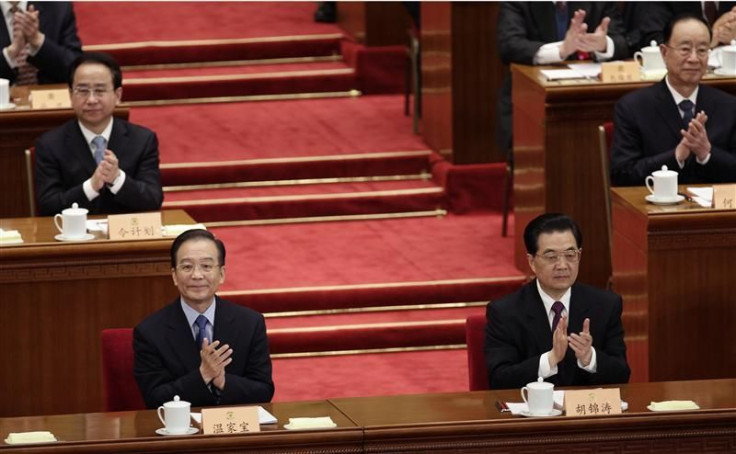China Decreases 2012 Growth Target to 7.5%

China will target an economic growth of 7.5 percent in 2012 said Premier Wen Jiabao in the state-of-the-nation speech, delivered at the annual meeting of the National People’s Congress in Beijing Monday.
This is clearly a decrease from the rate of growth of the last few years. In 2011 and 2010, the economy grew at the rate of 9.2 percent and 10.4 percent, respectively. We aim to promote steady and robust economic development, keep prices stable, and guard against financial risks by keeping the total money and credit supply at an appropriate level, and taking a cautious and flexible approach, Wen said in his annual work report to the NPC.
The continuing crisis in Europe and the weak economy in the U.S. have the hurt demand for Chinese exports, which are the key drivers of the country's economy. Earlier, the International Monetary Fund had warned that an escalation of Europe's debt crisis could reduce China's economic growth by half for this year.
Also the deceleration of the property investment, happening at an astonishingly faster than expected rate, is seriously impairing the economy of the country. China’s January home prices recorded their worst performance in at least a year, with none of the 70 cities monitored by the government posting gains.
Housing sales in China have plunged in recent months as home buyers have taken to the sidelines in anticipation of further decline in prices. Prices in 47 cities fell, while home values in the remaining 23 were unchanged from December, according to the National Statistics Bureau.
Faced with a slowing economy and persistent inflationary pressures, China is in a bind regarding its policies for the property sector. Income from land sales and property transaction-related fees has traditionally been a source of revenue for local governments in China.
Falling property prices feeding into slowing investment will in turn affect headline inflation readings. Inflation rose by 5.4 percent in 2011, which is higher than the government target of 4 percent. For 2012 it will aim for inflation of about 4 percent.
Last month World Bank President Robert Zoellick had said that China's export- and investment-driven economic model, though successful for decades, is no longer sustainable and reforms are needed to prevent a sudden slump in growth. World Bank had reported that growth will slow to between 5 percent and 6 percent annually by 2030 and a major overhaul will be needed to sustain even that level.
© Copyright IBTimes 2025. All rights reserved.





















